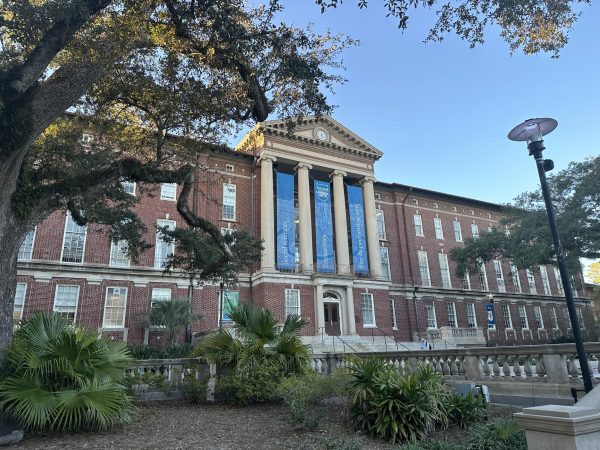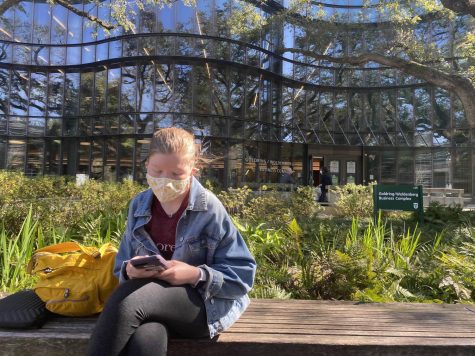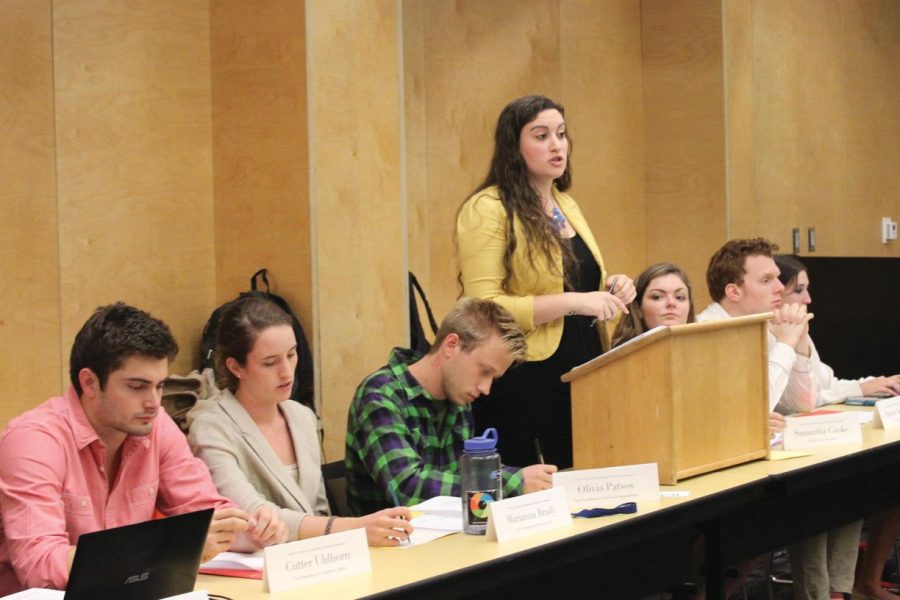USG works to revise undergraduate school constitutions
December 5, 2013
Throughout this semester, Undergraduate Student Government senators have passed four amendments to the USG constitution, one of which shifted the representation style from an at-large senatorial system to a school-based system. The current at-large system holds annual elections in which the entire student body elects senators for each class. In the new school-based system, the governments of the separate schools will internally select the USG senators.
The USG Constitution and Bylaws Review Committee restructured the constitutions of all five schools to fit the new representation style. Samantha Cooke, USG executive vice president and head of CBRC, said she thinks the switch is a move toward a more academic system. Cooke said she hopes this system will encourage more overall participation in the student government process.
“I think the reason [for the switch] is that we want to have more accountability in terms of academics and making sure all the school’s voices were heard within the context of USG,” Cooke said.
Each government will hold elections in the way that is outlined in its constitution. CBRC has worked with all of the individual schools in revising their constitutions within their own senates and the USG senate. The final constitutional revision was passed at the USG meeting Tuesday.
Kevin McCarty, science and engineering representative and member of CBRC, said the change was mostly in the organization of USG. There will be the same number of senators as the current system serving in USG, but now the USG senators will be selected from the elected governments of each individual school.
“You are going to end up with really the same people, but the route in which they get there is going to change,” McCarty said. “You will still have the same strong leadership and the system will have more pros.”
Cooke said the new role of freshmen is something that has been discussed in detail in regard to the new system. Freshmen will no longer serve as senators in USG as they did with the previous at-large system.
All of the constitutions of the individual schools require that at least one senator is from the freshman class, but these senators will not serve as representatives for their school as senators in USG. The new initiative is to install an internship program, which will take in approximately 30-to-40 incoming freshmen and teach them what it means to be leaders on campus.
“What we would love is for [the interns] to become the new student leaders around campus, not just within USG, but also with TUCP and The Hullabaloo, [etc.],” Cooke said.
Samantha Gould, Community Action Council of Tulane University chair, said the system will run more smoothly without the freshmen being elected to the senate in the fall because they will not have to train as many incoming senators.
“I think our goal is for people coming to USG to have all these different experiences to pull from, not only from their schools but also from other organizations on campus, whether it is Greek life, student organizations or community service,” Gould said. “We feel like as freshmen you might not have as much to pull from. Instead of getting involved with USG to get involved in campus, we want you to be involved in campus then want to be involved in USG, to use what you have been involved in to help those students.”























Leave a Comment